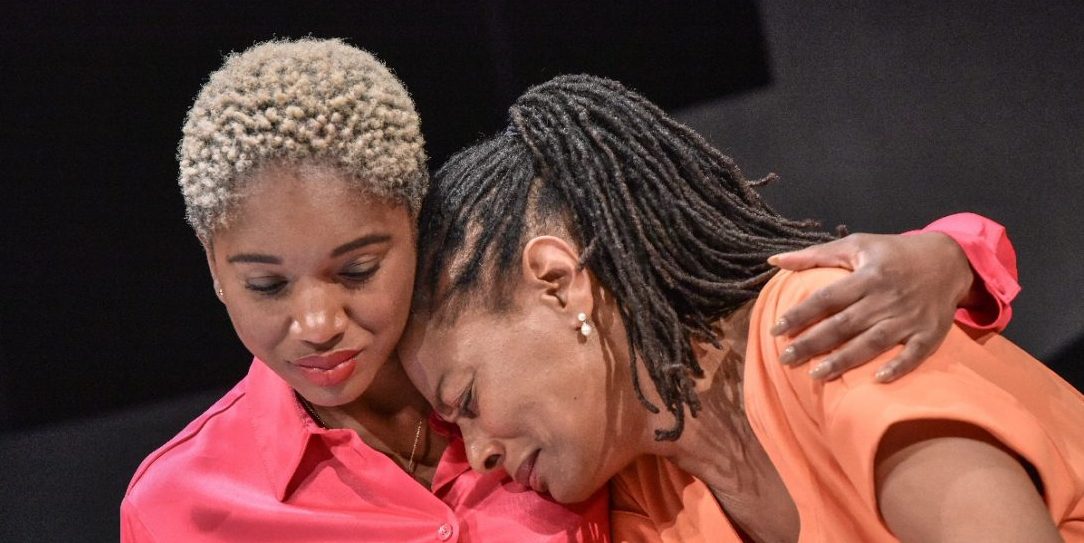The fellowship in “The Fellowship” is mainly that of Marcia and Dawn, the two sisters appearing in the poster. But Roy Williams’ ambitious play aims for bigger things and strives to explore the progress of the black community in Britain over three generations, so it’s a much wider fellowship. Marcia and especially Dawn take care of an ailing mother (never seen on stage) from the Windrush generation (immigrants from the Caribbean who came to the UK between 1948 and 1970). Marcia is a star barrister, not allowed to forget the fact that black women in her field are ultra-minority, and about to be destroyed by a stupid mistake involving a highly important white man. She is married to her career and doesn’t have children. Dawn, her younger sibling, is a mother of two sons from two fathers (the tragedy of one of her sons is gradually exposed), and her load in life seems too heavy for one person, as strong, politically aware, and socially active as she is.
The aforementioned poster shows the sisters engaged in their own private, maybe even secret, the world of joy and laughter. We do get a glimpse of that side in their relationship, but there is also a darker side, with much bitterness and resentment, mutual accusations, and of course hidden secrets, some of them quite unwelcome. I found myself longing for more of this intimate space, beautifully conveyed by Suzette Llewellyn and Cherrelle Skeete, who heroically stepped into the role at the very last minute after the original actress had to withdraw from the production. Skeete, admirably, is a commanding presence and a very strong link in an enjoyable slick, and brisk production by Paulette Randall. She has a great comic flair and gets big laughs with Dawn’s confession about achieving her first orgasm to Travolta’s music, or revealing her mom’s ingenious trick for exposing little lies. She lightheartedly dances to a playlist of very guilty pleasures of 80’s “white music”, from Take That (“It could be magic” illustrates one devastating scene) to Boy George, where Amazon’s Alexa becomes almost a character in itself. But Skeete also nails the heartbreaking moments and makes the most of them.
When the outside world invades the sisters’ world, things become a bit less inviting. Too many subplots overburden the play, which seems to have at least three different endings, and most of the other characters, frankly, are not particularly compelling. Trevor Laird does his best as Tony, the free spirit (perhaps too free) romantically involved with Dawn, but the character is drawn as a caricature or a comic relief, with a limited emotional range. Dawn’s son is angry, and his girlfriend is mysterious, but somewhere along the way the play, for all its good intentions and fine qualities, simply loses the plot, so to speak, and we sadly cease to care.

